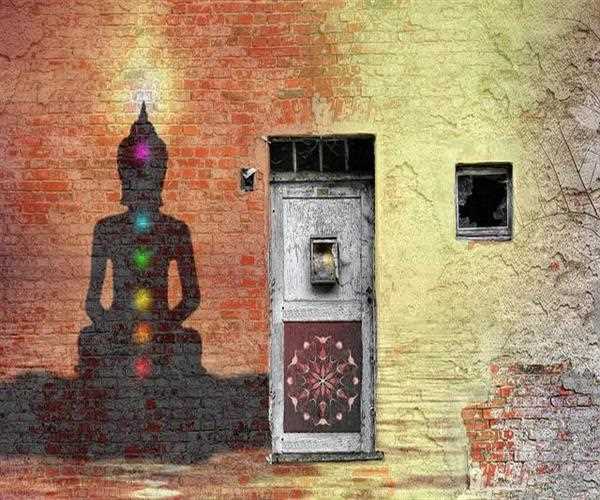
27-Aug-2022
Mind according to the Vedas
- Spirit according to the Vedas
When we (subjects) perceive an object (or idea), we first develop this object with ourselves. We then classify the object as good or bad (duality) according to our conditioning, giving apparent pain or pleasure. Let us analyze the transaction between object and subject. Objects are made up of five general elements: space, air, fire, water, and earth. It is perceived through these five senses: sound, touch, shape, taste, and smell. For example, when we look at a menu in a restaurant, our senses convey to the mind the perceived items on the menu. There are three levels here. Submit (Mann): The Submind is directly related to the five senses and is responsible for making choices. emotions and feelings Scrolling through the various menu items is a confusing activity. Mind (Buddhi): The lower mind provides menu options to the mind located between the lower mind and Chitta. Intelligence includes discrimination, judgment, reasoning, and rationality. Notice. The final selection of menu items is done by intelligence. Cheetah: The cheetah is the basic workings of the mind: conscious, unconscious, unconscious, and memory. Chitta attains the highest wisdom (Viveka).
2. Spirit and spirituality
And the last action is performed by the ego, ordering an item from the menu. In the whole process, the ego turns from the senses to the lower mind, to the intellect, to the cheetah, and back again. The mind separate from the body lies between the two extremes, but complementary (not opposed) purposes and the mind. Depending on our will and past Samskaras, the ego can be placed in any way. The material person and the spiritual person have their selves in the body and the cheetah respectively. During their creative work, scientists and artists still maintain their egos as psychics and other Chittas because they use energy from the external material world. Energy flows through the five senses. If you block one channel, water will flow into the other channel. Therefore, the blind have a special sense of smell and hearing. Since then, only a small percentage of the mind is used for the external material world, and the mind is atrophied. Mind is thought and thought is time. Absence of mind means the absence of mind, leading to an experience that transcends the five senses and thus transcends time. For example, the experience of deep sleep is thoughtless and emotionless. From the material point of view, spiritualism is an irrational doctrine of the rational mind. Our knowledge (the foundation of logic) is based on the five senses and the theory of relativity. Therefore, spiritualism transcends the five senses and logic. Spiritually, spiritualism is the rational teaching of the irrational mind.
3. Law of Karma...
Events in our lives are based on cause and effect. Our past karma (thoughts, words, actions) gives present consequences and thus influences future karma. Our karma acts as a propeller and guides us to the next course. Through karma, we go through a process of purification (Prakriti) which is conditioned and produced by matter. There are several categories of karma that can be explained by Bowman's analogy. Accumulated actions (Sanchit Karma) are like a pile of arrows. A beneficial action (Prarabdh karma) is an arrow that cannot be recalled. Current Actions (Kriyaman Karma) is the arrow you want to shoot from the bow. Proper use of fertile karma allows you to control accumulated karma and current karma. We have free will, but we are limited by our past karma. The river of 'freedom' can change its course at predetermined karma. In terms of quality, karma can be divided into four types: positive and negative. On the right side. Neutral, so neither positive nor negative. For most of us, karma can be positive or negative. When you do something, you also do good and bad things. Therefore, we should strive to do actions that bring more good and less harm. Ordinary people produce type 1 and type 2 karma, and there is quite a large percentage of karma to drink. The fourth type of Kamma can only be attained by a meditator. Karma accumulated in its latent form is called Samskara and is the subtle basis of our explicit desires (Vasanas). Samskara is strengthened by false knowledge (Avidya) and ignorance begins to regard the temporary as eternal. It looks clean. Pain is like pleasure. A soul, not a soul (body, mind, etc.). The result is worldly suffering (Klesha). Pain and pleasure are two sides of the same coin and are said to disease.

Student
An inquisitive individual with a great interest in the subjectivity of human experiences, behavior, and the complexity of the human mind. Enthusiased to learn, volunteer, and participate. Always driven by the motive to make a difference in the sphere of mental health - and normalize seeking help through a sensitive and empathetic approach
Join Our Newsletter
Subscribe to our newsletter to receive emails about new views posts, releases and updates.
Copyright 2010 - 2026 MindStick Software Pvt. Ltd. All Rights Reserved Privacy Policy | Terms & Conditions | Cookie Policy